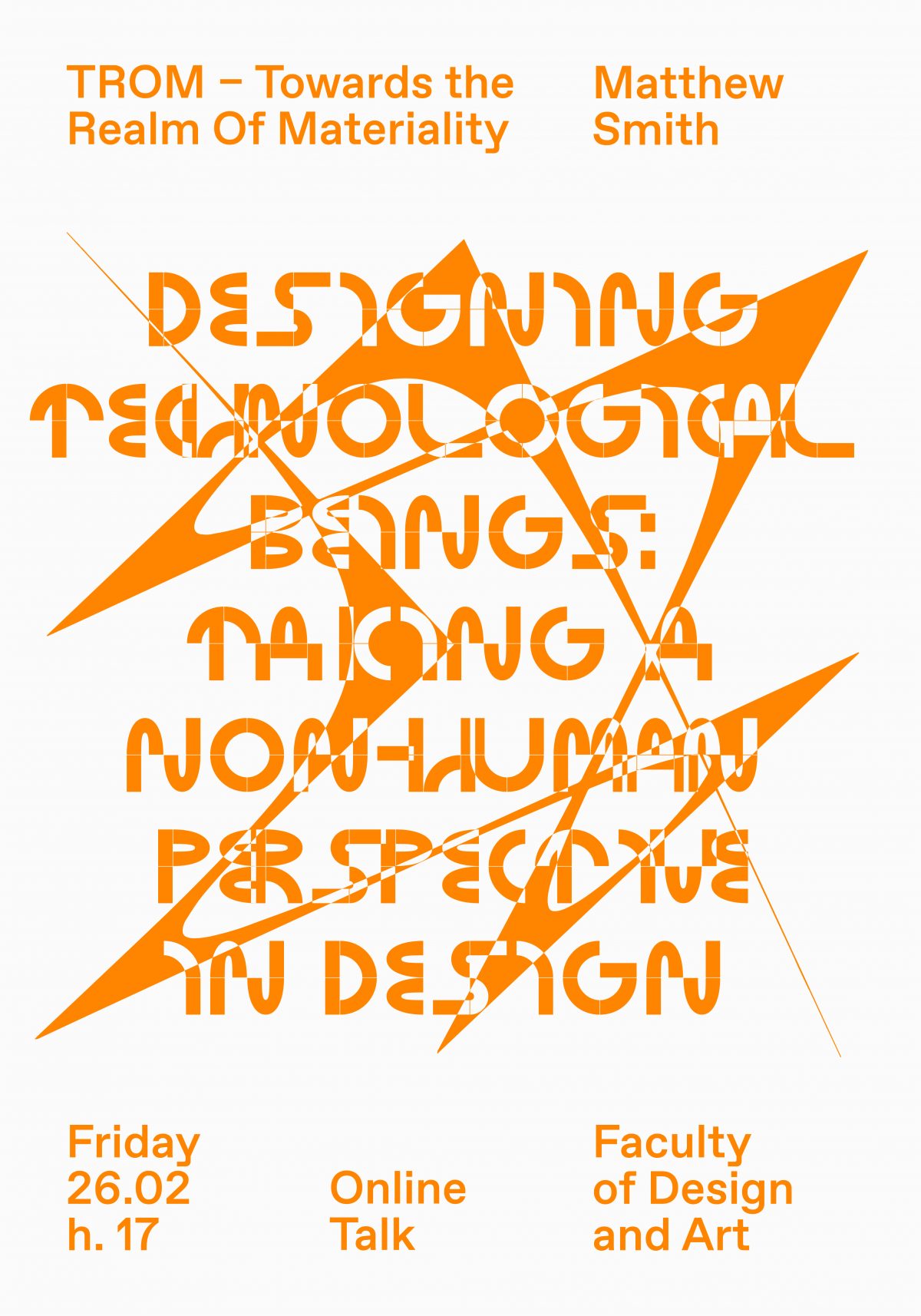Designing Technological Beings: Taking a Non-Human Perspective in Design
Online talk: Friday 26th February, 17:00
Towards the Realm of Materiality – TROM
Opening a series of meetings, talks and workshops led by designers and artists to explore, through both the instruments of speculative design and transmedia processes, the oeuvre and the non-existing technologies imagined by Philip K. Dick. Welcome to our second meeting with Matthew Smith, designer and researcher at the School of Design and Creative Arts at Loughborough University.
TROM is a research project by German A. Duarte, Secil Ugur Yavuz and Andrea Facchetti, aiming at designing and giving material form to alternative versions of some of the non-existing technological devices described in Philip K. Dick’s oeuvre. This practice-based research seeks indeed to better comprehend the creative process able to transform a philosophical concept, or a social concern, into a designed technological device or into a non-existing object. By means of a series of practical and theoretical workshops focused on transmedia phenomena concerning Dick’s narrative universe, the project is placed at the convergence of different disciplines: Media Studies, Art Theory and Speculative Design. Within this framework, talks and seminars are periodically conducted to analyze the nature, the role and the social relevance of Dick’s imagined devices to then design and combine new methods and tools of materializing concepts through an object.
Matthew Smith
Matthew Lee-Smith is critical design researcher and wannabe design philosopher currently undertaking a PhD at the School of Design and Creative Arts at Loughborough University. He holds a MA in Interaction Design from Goldsmiths, University of London, and a BSc in Product Design from Brunel University London. His research uses a critical research through design methodology to conduct exploratory basic design research into topics such as navigation, crowdsourcing, physical-digital devices, human-data interaction, and thing-centred design. He is currently working with the assistance and funding of Loughborough University, the Centred for Doctoral Training: Embedded Intelligence, and Ordnance Survey.
